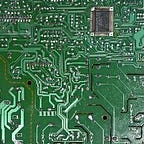Exploding Computational Thinking:
The Global Math Project & Wolfram Research
For the past year we at The Global Math Project, a leadership team of seven math professionals, together with a worldwide network of ambassadors and partners, have been laying the groundwork for the inaugural Global Math Week, which will launch on October 10, 2017.
Our ultimate goal with this project is to build a fundamental paradigm shift for how the world perceives and enjoys mathematics. We want each and every person on this planet to see mathematics as human, relevant, meaningful, creative, uplifting, joyful, and accessible. We will show how the play and wonder of mathematics transcends borders and unites communities.
To participate, we ask teachers, math club and Math Circle leaders, and other educators and math outreach specialists to conduct one short experience with students on our chosen topic for 2017, Exploding Dots, and to share that experience with the world in some way, most typically through social media (using #gmw2017 and #explodingdots). We also welcome individuals and math community groups outside of schools to take part, too. This is a global community experience and we hope you will participate!
The Global Math Project is excited to invite the Wolfram community to this mathematical experience, and Wolfram Research is thrilled to be a part of the Exploding Dots phenomenon and the Global Math Project. When Wolfram Research thought about how we could be a part of this initiative, we realized that one might approach the mathematical concepts elucidated in Exploding Dots using the lens of computation and programming. With the Wolfram Language, this is very easy to do.
The world-wide community supporting our inaugural Global Math Week 2017 is grassroots and strong. We have more than 300 ambassadors from over 90 countries helping to spread the word, as well as thousands of teachers from over 80 countries who have registered to participate, pledging to do joyous, uplifting mathematics during Global Math Week with more than 440,000 students. It is global phenomenon!
We are also proud to have 28 notable partner organizations supporting our efforts, including the American Institute of Mathematics, the National Museum of Mathematics, and, of course, Wolfram Research. You can view our partner’s page for a complete list and find materials for joining our team.
During this first year, the Global Math Project’s goal is to reach one million students. We are truly honored to be working with such a fine, growing community of math leaders and partners equally dedicated to sharing joyful, uplifting mathematics with the world.
As participants of the Global Math Week will see, the Exploding Dots material is presented in incremental steps. Two of Wolfram Research’s talented high school summer program alumni, Davin Park and JungHwan Min, took part in the project.
Davin and JungHwan examined the Exploding Dots curriculum and created a Wolfram Language implementation of the lessons. You can see the amazing work they created in the Global Math site or by going directly to their Wolfram Cloud resource notebooks: “Exploding Dots in the Wolfram Language” and “Exploding Dots in the Wolfram Language — Another Tutorial.” Both notebooks are interactive and serve as valuable learning resources for the Global Math Project.
In these resource notebooks, you can experience Exploding Dots using interactive code: code you can control, manipulate, and learn from using. All source code is freely available in the notebooks. If you are so inclined, the notebooks present additional learning opportunities where you can teach yourself how to write code and create powerful applications. The initial rendering for the notebooks will take a minute or so to load; pay attention to the blue progress bar. The fun really begins in the “Examples and Demonstrations” sections.
As high school students, Davin and JungHwan found that the Wolfram Language lent itself perfectly to creating educational curriculum. It was easy for them to reemploy existing curriculum as computational lessons. After exploring these students’ work, perhaps you will find yourself inspired to create more lessons for your own classroom to celebrate Global Math Week. If you do, please let us know!
About the bloggers:
James Tanton
James Tanton (PhD, Princeton 1994, mathematics) is an author and consultant, as well as an ambassador for the Mathematical Association of America in Washington D.C., currently serving as their Mathematician-at-Large. He has taught mathematics at both university and high school institutions. James is committed to promoting effective and joyful mathematics thinking, learning, and doing at all levels of the education spectrum.
James has written a number of books, including The Encyclopedia of Mathematics (Facts on File, 2005) and two wordless puzzle books, Without Words and More Without Words (Tarquin, 2015), which have each been translated in Serbian. He has developed two DVD Great Courses (The Teaching Company, 2013 and 2016). James advises on curriculum, consults with teachers, and gives demonstration classes and professional development opportunities across the globe. James also leads the MAA’s Curriculum Inspirations project, www.maa.org/ci and is founder of The Global Math Project,www.theglobalmathproject.org.
See his sites www.jamestanton.com and www.gdaymath.com for more information.
Ish Vardhani
Ish Vardhani works in the Partnerships division at Wolfram Research, with a special interest in education. Ish joined Wolfram in 2015 and has been engaged in several educational outreach initiatives, including leading workshops and camps to promote computational thinking among middle and high school students.
Prior to joining Wolfram, Ish taught undergraduate mathematics at the University of Cincinnati. At Wolfram, Ish enjoys working with edtech stakeholders, schools, educators, and students to cultivate meaningful relationships around the Wolfram tech stack and find new and creative ways of incorporating cutting edge tech in education.
